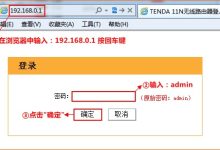在C#中,你可以使用TcpListener类来创建一个TCP监听器。为了提高性能,你可以采取以下措施:
- 使用线程池:当你接受一个新的客户端连接时,可以将其处理任务分配给线程池中的一个线程,而不是为每个连接创建一个新的线程。这样可以避免创建过多的线程,从而提高性能。
using System;
using System.Net;
using System.Net.Sockets;
using System.Threading.Tasks;
class TcpListenerExample
{
static void Main()
{
int port = 12345;
IPAddress ipAddress = IPAddress.Any;
TcpListener listener = new TcpListener(ipAddress, port);
listener.Start();
Console.WriteLine("Server started...");
while (true)
{
// Accept a client connection
TcpClient client = await listener.AcceptTcpClientAsync();
// Assign the task to the thread pool
Task.Run(() => HandleClient(client));
}
}
static async Task HandleClient(TcpClient client)
{
NetworkStream stream = client.GetStream();
byte[] buffer = new byte[1024];
// Read data from the client
int bytesRead = await stream.ReadAsync(buffer, 0, buffer.Length);
string data = Encoding.UTF8.GetString(buffer, 0, bytesRead);
Console.WriteLine($"Received: {data}");
// Send a response to the client
string response = "Hello from server!";
byte[] responseBytes = Encoding.UTF8.GetBytes(response);
await stream.WriteAsync(responseBytes, 0, responseBytes.Length);
// Close the connection
client.Close();
}
}
-
使用异步编程:使用异步编程方法(如
async和await)可以避免阻塞主线程,从而提高性能。在上面的示例中,我们已经使用了异步方法AcceptTcpClientAsync和ReadAsync。 -
调整缓冲区大小:根据你的应用程序需求和网络条件,可以调整缓冲区的大小。在上面的示例中,我们使用了1024字节的缓冲区。如果需要处理更大的数据包,可以增加缓冲区的大小。
-
关闭不再需要的连接:当客户端断开连接时,确保关闭
TcpClient对象以释放资源。在上面的示例中,我们在HandleClient方法的末尾调用了client.Close()。
通过采取这些措施,你可以创建一个高性能的TCP监听器。

 便宜VPS测评
便宜VPS测评







